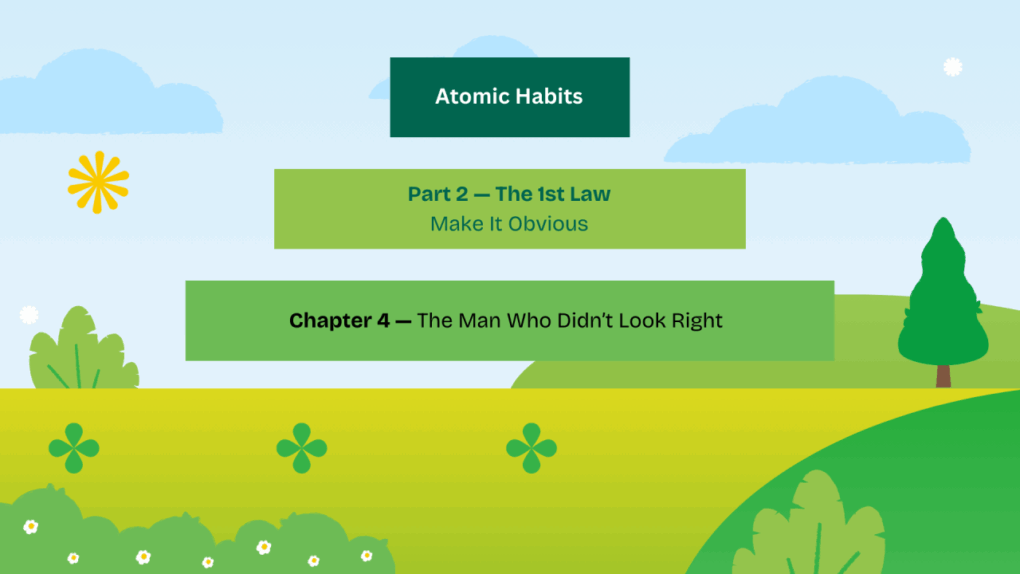August 19, 2025
Atomic Habits – Chapter 4: The Man Who Didn’t Look Right

Book Highlights — Some books stick with you, others challenge you, and a few do both. I’m using this space to capture highlights, ideas, and reflections—less a summary, more a mix of what stood out and why it matters (at least to me). Maybe it sparks something for you too.
This time: Atomic Habits by James Clear — a practical guide to how small changes lead to big results.
Part 1 – The Fundamentals (Why Tiny Changes Make a Big Difference)
- Chapter 1 – The Surprising Power of Atomic Habits
- Chapter 2 – How Your Habits Shape Your Identity (and Vice Versa)
- Chapter 3 – How to Build Better Habits in 4 Simple Steps
Part 2 – The 1st Law: Make It Obvious
- Chapter 4 – The Surprising Power of Atomic Habits
🧠 Habits and Human Nature
Every goal is doomed to fail if it goes against the grain of human nature. Systems and environments shape habits far more than raw willpower.
If your systems reinforce the wrong behaviors, your habits will too.
🔮 The Brain as a Prediction Machine
Our brains are constantly scanning for cues, making predictions, and updating based on outcomes—most of it unconsciously.
With practice, you begin to notice subtle signals before you can articulate them.
👀 “The Man Who Didn’t Look Right”
A nurse once sensed something was wrong with a patient—even before any monitors showed danger. She couldn’t explain it at first, but experience had trained her brain to pick up faint cues unconsciously.
This story illustrates the hidden power of habits: they help us detect patterns others might miss.
🌊 Habits on Autopilot
The body runs countless processes automatically—heartbeat, breathing, hair growth. Similarly, many habits operate beneath awareness.
You don’t even need to notice a cue for a habit to fire. Once ingrained, habits run silently in the background.
This makes them incredibly useful… and potentially dangerous.
🧊 Conscious vs. Unconscious
“Until you make the unconscious conscious, it will direct your life, and you’ll call it fate.”
Habits reduce cognitive load by outsourcing decisions to autopilot. But if you don’t shape them deliberately, they shape you—often without you realizing.
🛠 How to Use This
- Audit your routines: which habits run automatically, for better or worse?
- Strengthen cues that align with the identity you want to reinforce.
- Notice moments when your brain “just knows” something—experience is teaching you cues you might not consciously see.
🧭 Reflection Prompt
What’s one habit you run on autopilot that deserves to be brought into the light?
